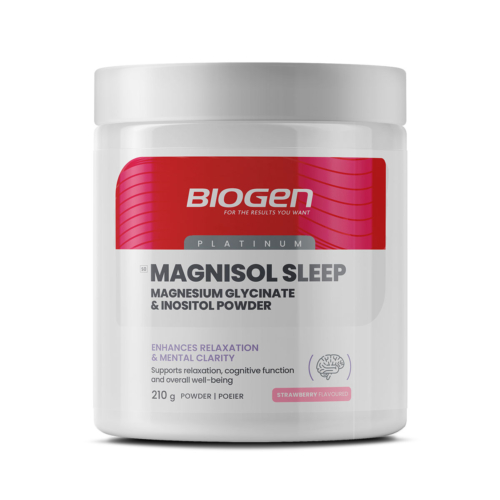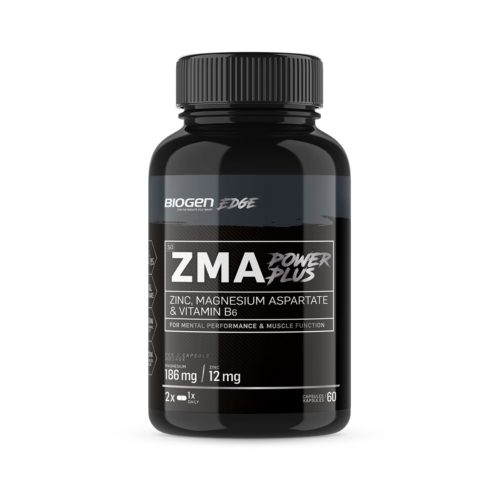
Her’s how Magnesium may help if you’re struggling to sleep during winter
Frigid mornings, shorter days, earlier sunsets, and cold nights can make life more challenging for a nation already suffering from a sleep deprivation epidemic.
According to a recent nationwide sleep survey conducted by Sloom, the average South African gets between 6h20 and 6h35 of sleep each night, which is below the recommended 7-9 hours for adults, with only 20% stating that they wake up feeling truly rested.
Scarce Winter Slumber
This is a major concern because sleep is the foundation of immune strength, mental clarity, and physical recovery, which is especially critical in winter when cold, dry air and longer nights strain our bodies and minds.
During sleep, your body repairs muscle tissue, balances hormones, regulates mood, and boosts immune defences to fight off the seasonal cold and flu.
However, many South Africans struggle with poor sleep due to increased screen time, exposure to blue light, work pressures, and the always-on nature of digitally connected lives.
These modern stressors elevate cortisol, your body’s primary stress hormone, which in turn disrupts melatonin production and throws off your natural sleep-wake cycle. The result? Tossing, turning, tension, and tiredness.
Sleep and Recover Better with Magnesium
Magnesium is an often overlooked supplement when it comes to sleep support, but it’s an unsung hero when it comes to deep, restorative shut-eye.
Known as the “master mineral”, magnesium is involved in over 300 enzymatic processes that keep your body running smoothly — from regulating blood sugar and blood pressure to producing energy and supporting nerve and muscle function.
But its real superpower is helping you switch off at night.
Magnesium plays a crucial role in regulating GABA (gamma-aminobutyric acid), a calming neurotransmitter that quiets the nervous system and prepares your brain for sleep.
Magnesium acts as a modulator of GABA receptors1, enhancing their activity and promoting relaxation. Without enough of this mineral, GABA activity drops, making it harder for your mind to shut down, leading to difficulty falling or staying asleep.
This mineral also helps reduce the physical tension that builds up in tight, overworked muscles. If you’re waking up with cramps, stiffness, or soreness after winter workouts or long stretches in front of a laptop, a magnesium deficiency may be at the root.
Signs Of Magnesium Deficiency
Many South Africans are increasingly falling short of meeting their magnesium requirements due to modern diets high in processed foods and low in whole, nutrient-dense ingredients.
But your diet isn’t the only culprit. Factors like chronic stress, alcohol use, excessive caffeine, and certain medications (including antibiotics and diuretics) can impair magnesium absorption or increase magnesium loss.
Symptoms of a deficiency can vary, but often include:
- Insomnia or restless sleep
- Muscle cramps and spasms
- Fatigue and low energy
- Anxiety and mood swings
- Sensitivity to light and noise
- Headaches and hormonal discomfort
Hard-training athletes, women with PMS, and those who experience high stress are especially vulnerable to low magnesium levels, particularly in colder months.
Beyond Sleep: Magnesium’s Other Benefits
For active individuals, magnesium doesn’t just improve sleep, it also supports:
- Muscle recovery by aiding tissue repair and reducing inflammation
- Energy production at the cellular level by maintaining optimal mitochondrial function
- Hydration and electrolyte balance, preventing winter dehydration-related cramps
- Glucose metabolism, improving fuel availability during workouts
- Reduced lactate buildup, helping you maintain intensity for longer
And because magnesium supports calcium and potassium absorption, it helps strengthen bones and muscles, which is essential for staying mobile and strong throughout winter.
Magnesium Supplement Options
While magnesium is present in foods like leafy greens, legumes, seeds, nuts, bananas, and dark chocolate, modern diets (and poor soil quality) often make it hard to meet your daily needs from food alone.
For those who struggle to get sufficient magnesium from their diet, bioavailable supplements can offer nutritional support. Biogen stocks a range of magnesium supplements, including:
- Biogen Magnesium Glycinate: Bound to glycine for superior absorption and gentle on the gut
- Biogen ZMA: Contains magnesium aspartate, another highly bioavailable form great for athletes
- Biogen Magnesium Chelate: Highly absorbable, ideal for performance and recovery
For anyone suffering from poor sleep, especially in winter, consider new Biogen Magnisol Sleep. The combination of magnesium glycinate, inositol, and vitamin C helps support muscle function, maintain electrolyte balance, and support a healthy immune system while reducing oxidative stress.
For the best potential results when it comes to deep restorative winter sleep, pair Biogen Magnisol Sleep supplement with a warm, tech-free wind-down routine before, like taking a bath with Epsom salts (magnesium sulphate), followed by some herbal tea, screen-free journalling or reading, and some meditation or mindfulness to enhance its effects.
Always speak to a health professional before starting any new supplement, especially if you’re taking medication or managing a health condition.
References:
- Pickering G, Mazur A, Trousselard M, Bienkowski P, Yaltsewa N, Amessou M, Noah L, Pouteau E. Magnesium Status and Stress: The Vicious Circle Concept Revisited. Nutrients. 2020 Nov 28;12(12):3672. doi: 10.3390/nu12123672. PMID: 33260549; PMCID: PMC7761127.
















